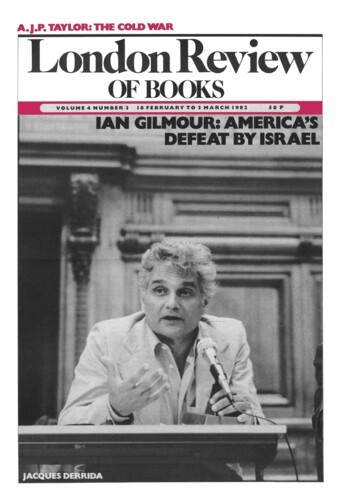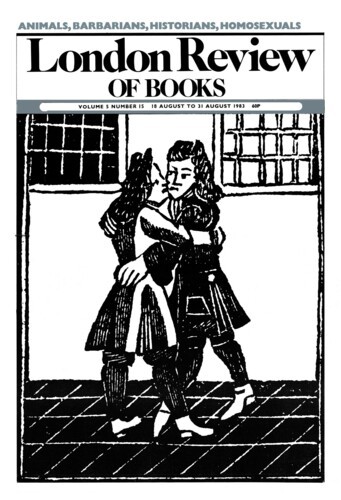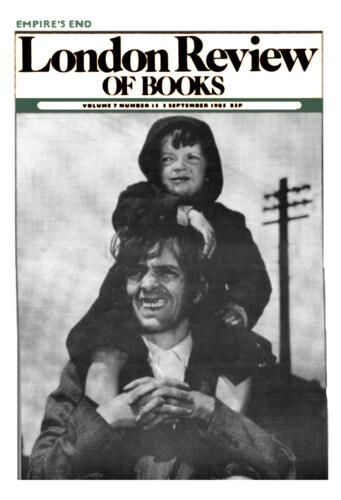Against Simplicity
Stuart Hampshire, 18 February 1982
The surprising title, first attached to one essay among the 13 here collected, does suggest the theme that holds the book together. Much of the argument in the various essays is a many-sided onslaught on Kant’s conception of morality. Kant had represented morality as imposing identical claims on all men equally and at all times, irrespective of all other differences between them, including differences in their sentiments, their characters and their circumstances. The claims, if they are authentic moral requirements, must arise from a common humanity and a common rationality, and not from any contingent features of particular situations in which particular persons have found themselves. The implication was that the claims of morality must be wholly disconnected from claims and loyalties founded on sentiment or on social custom, and from codes of honour and of decorum. Universal and overriding, the requirements of morality show themselves in our natural languages as unconditional commands – ‘Thou shalt not steal,’ ‘Thou shalt not bear false witness’ – emanating, not from God, but from Reason. This was one of the philosophies of the Enlightenment, designed to unite mankind across religious and national barriers in a common consciousness and in a common prospect of the future. As the Enlightenment has receded, and as the common future projected by the Enlightenment has proved illusory, so the idea that morality’s claims upon us rest upon reason alone has faded within moral philosophy. Mr Williams attacks this rationalism.





